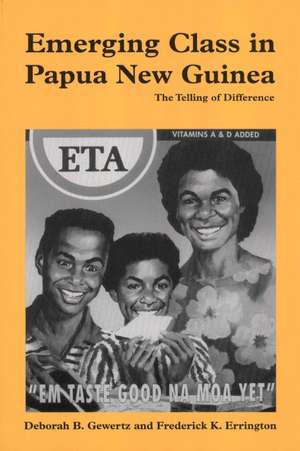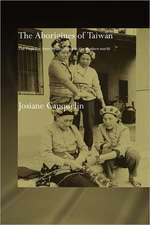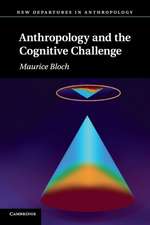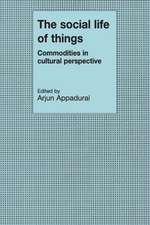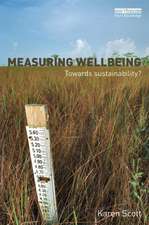Emerging Class in Papua New Guinea: The Telling of Difference
Autor Deborah B. Gewertz, Frederick K. Erringtonen Limba Engleză Paperback – 25 aug 1999
| Toate formatele și edițiile | Preț | Express |
|---|---|---|
| Paperback (1) | 243.76 lei 6-8 săpt. | |
| Cambridge University Press – 25 aug 1999 | 243.76 lei 6-8 săpt. | |
| Hardback (1) | 443.55 lei 6-8 săpt. | |
| Cambridge University Press – 25 aug 1999 | 443.55 lei 6-8 săpt. |
Preț: 243.76 lei
Nou
Puncte Express: 366
Preț estimativ în valută:
46.64€ • 48.60$ • 38.62£
46.64€ • 48.60$ • 38.62£
Carte tipărită la comandă
Livrare economică 03-17 aprilie
Preluare comenzi: 021 569.72.76
Specificații
ISBN-13: 9780521655675
ISBN-10: 0521655676
Pagini: 192
Ilustrații: 12 b/w illus. 1 map
Dimensiuni: 153 x 228 x 14 mm
Greutate: 0.28 kg
Editura: Cambridge University Press
Colecția Cambridge University Press
Locul publicării:Cambridge, United Kingdom
ISBN-10: 0521655676
Pagini: 192
Ilustrații: 12 b/w illus. 1 map
Dimensiuni: 153 x 228 x 14 mm
Greutate: 0.28 kg
Editura: Cambridge University Press
Colecția Cambridge University Press
Locul publicării:Cambridge, United Kingdom
Cuprins
List of illustrations; Acknowledgements; 1. Introduction; 2. The middle class, the (new) Melanesian way: the Wewak Rotary Club; 3. How the grass roots became the poor: the sleights of hand in the construction of desire; 4. The realization of class exclusions: golf and the boundaries of solidarity; 5. The hidden injuries of class: desiring the unattainable; 6. The problem(s) of the poor: law, order and tinned mackerel and water buffalo; 7. Class and the definition of reasonability: the case of the 'compo girl'; Conclusion: on dark nights of the soul; Notes; References; Index.
Recenzii
"Gewertz and Errington have written a very valuable study of how a middle class is being formed among the people of Papua New Guinea under contemporary conditions of globalization." Choice
"It is refreshing to see ethnographic data that actually confront an issue in PNG that nearly all of us who work there know has occurred, but which almost no anthropologist has taken seriously. For that reason alone, this book would be most welcome, but i has many other contributions to make as well. This important book is readable and provocative. Many will find it suitable for both undergraduate and graduate courses on development, modernization, and globalization, as well as for Oceania courses. Its firm base in Chambri ehtnography gives it a grounding that will be hard to find elsewhere." Anthropoligical Quarterly
"...this is a valuable book of immediate relevance. It has important things to say about and to the people of Papua New Guinea and a message about the larger question of class. I hope it inspires vigorous discussion and additional research on this vital issue." The Contemporary Pacific, Michael French Smith, LTG Associates
"It is refreshing to see ethnographic data that actually confront an issue in PNG that nearly all of us who work there know has occurred, but which almost no anthropologist has taken seriously. For that reason alone, this book would be most welcome, but i has many other contributions to make as well. This important book is readable and provocative. Many will find it suitable for both undergraduate and graduate courses on development, modernization, and globalization, as well as for Oceania courses. Its firm base in Chambri ehtnography gives it a grounding that will be hard to find elsewhere." Anthropoligical Quarterly
"...this is a valuable book of immediate relevance. It has important things to say about and to the people of Papua New Guinea and a message about the larger question of class. I hope it inspires vigorous discussion and additional research on this vital issue." The Contemporary Pacific, Michael French Smith, LTG Associates
Descriere
This 1999 book examines the emergence and ramifications of class in an urban setting in Papua New Guinea.
